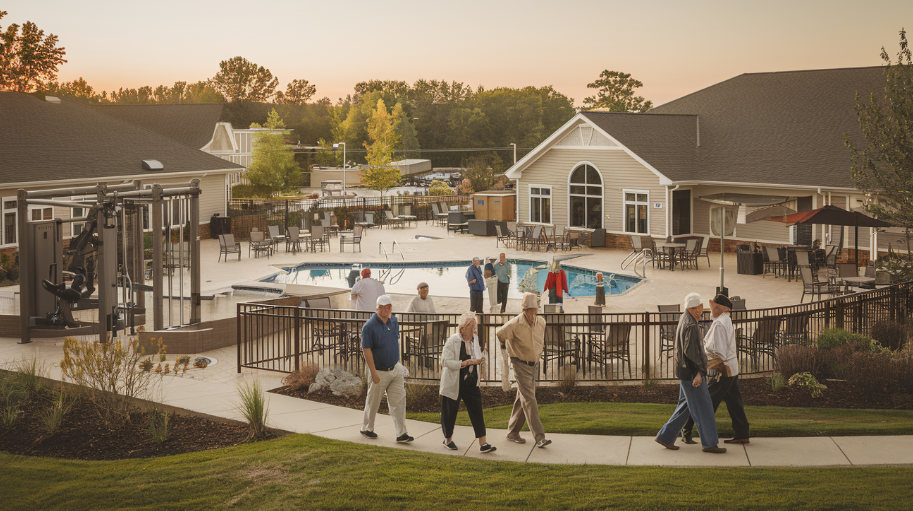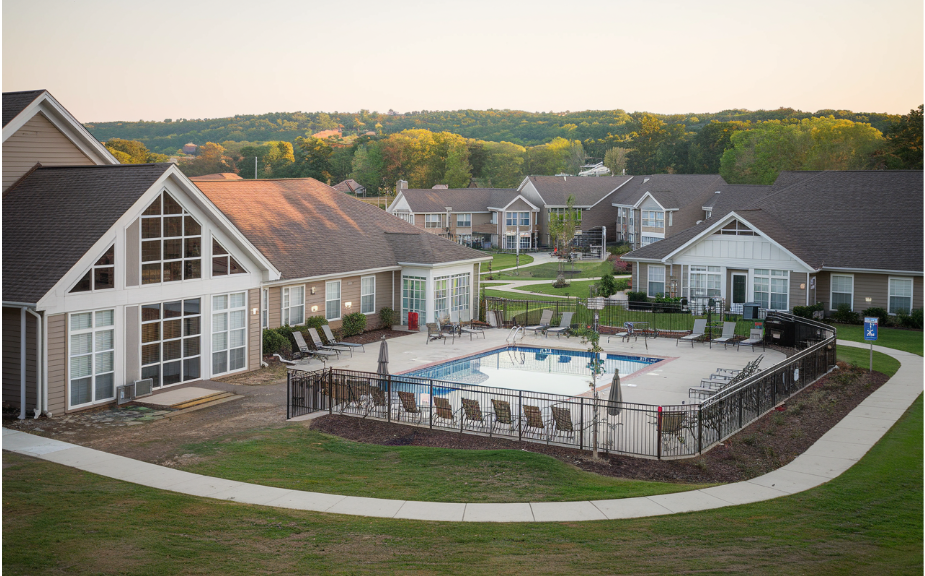As we navigate through different stages of life, maintaining a high quality of life becomes an essential focus.
For many, moving to a retirement community can offer a fresh start and a wealth of opportunities to enhance daily living. Far from the common misconceptions, these communities provide vibrant environments that foster social interactions, promote wellness and ensure access to support services tailored to individual needs.
In this blog post, we will explore the variety of ways in which transitioning to a retirement community can lead to a fulfilling and enriched lifestyle. Understanding these benefits can empower you to make informed decisions that align with personal values and priorities, whether you are considering this move for yourself or a loved one.
Once you’ve finished reading this blog post, click the following link to learn how Seasons Retirement Communities can help older adults improve their quality of life.
1. Enhanced quality of life
Transitioning to a retirement community can significantly enhance the quality of life for older adults in various ways. One of the primary benefits is the increased opportunity for social engagement.
These communities often host a variety of activities, from fitness classes to cultural events, allowing residents to build new friendships and find a sense of belonging. Staying socially active is crucial for mental well-being and can lead to improved emotional health.
Additionally, retirement communities typically provide access to wellness programs that cater to their residents’ diverse needs. These programs may include exercise sessions, healthy cooking classes and wellness seminars that encourage a holistic health approach. By promoting an active lifestyle, residents can enjoy both physical and mental benefits, leading to an overall improved quality of life.
Moreover, these communities offer peace of mind through tailored support services ranging from housekeeping to transport assistance. Knowing that support is readily available allows residents to focus on enjoying their regular activities without the burden of household responsibilities.
Such an environment enhances independence and promotes a more fulfilling and enjoyable experience in one’s later years.
2. Recreational opportunities
Retirement communities offer many recreational opportunities that cater to an extensive range of interests and preferences. Engaging in these activities provides older adults with physical benefits, strengthens social connections and boosts overall happiness.
One of the key advantages of participating in recreational activities is the promotion of physical fitness. Many communities organize daily exercise classes, from yoga and swimming to aerobics, designed to accommodate various fitness levels. Regular physical activity helps enhance mobility, balance and strength, contributing to better overall health.
In addition to physical activities, residents can enjoy a variety of creative pursuits such as painting, pottery and music classes. These hobbies offer a chance for self-expression and encourage cognitive stimulation, keeping the mind sharp and engaged.
Moreover, communal events like game nights, movie screenings and gardening clubs foster community and belonging. Older adults can connect with others with similar interests, paving the way for knowledge-sharing and lasting friendships. This social interaction is essential, as it helps combat feelings of loneliness and isolation often experienced in later stages of life.
Overall, the diverse array of recreational opportunities in retirement communities enriches the lives of older adults, ensuring that they remain active, engaged and fulfilled.
3. Personalized care
Personalized care services in retirement communities are essential in enhancing older adults’ well-being. These tailored services are designed to meet each resident’s unique needs and preferences, ensuring they receive the right level of support while retaining their independence.
One of the most noteworthy advantages of personalized care is that it enables residents to maintain their routines and lifestyle choices. Care plans are often developed in collaboration with residents, allowing them to express their needs and desires, which provides a sense of autonomy and control.
Additionally, personalized care services can encompass a wide range of support, including assistance with bathing, dressing, meal preparation, health monitoring and medication management. This approach ensures that older adults receive the necessary help while maintaining dignity.
Moreover, caregivers are typically trained to build meaningful relationships with residents, promoting trust and emotional support, which is vital for mental health.
Access to these personalized services enhances the overall quality of life for older adults and provides peace of mind for their families. Knowing that their loved ones receive attentive care tailored to their requirements alleviates concern and fosters a collaborative environment between families and care providers.
Ultimately, the personalized care offered in retirement living communities is a cornerstone of a supportive, enriching lifestyle that prioritizes the happiness of older adults.
4. Ease of transportation
Transportation services offered by retirement living communities provide significant benefits for older adults, enhancing their mobility and independence.
One of the primary advantages of these services is the convenience they offer residents in accessing essential amenities and activities, such as grocery stores, medical appointments and social outings. Ensuring that individuals can maintain their routines and stay connected to their community effectively reduces feelings of isolation.
Furthermore, transportation often includes door-to-door service, alleviating the stress of driving, navigating unfamiliar routes and finding parking. Such support is especially beneficial for those who may no longer feel comfortable driving due to age-related challenges.
Additionally, these services are designed to accommodate various mobility needs, ensuring that all residents have access to safe and reliable transportation, whether they require assistance getting in and out of vehicles or need specialized transport options.
The transportation services provided by retirement communities promote a more active lifestyle and empower older adults to engage with their surroundings and maintain their autonomy, fostering a sense of freedom and confidence in their daily lives.
Conclusion
By providing tailored support services, a variety of recreational opportunities, personalized care and ease of transportation, retirement living communities empower older adults to maintain their independence while fostering a strong sense of community. Engaging in meaningful activities promotes physical and emotional health by minimizing feelings of isolation and loneliness.
Ultimately, retirement living creates an enriching environment that prioritizes older adults’ health, happiness and personal preferences, allowing them to thrive in their later years.




